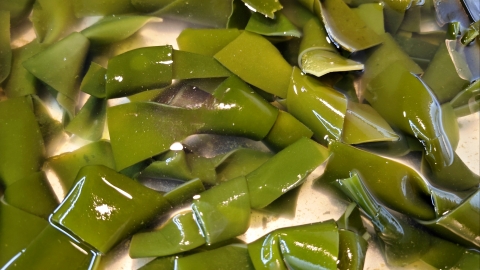Can mung beans and kelp be eaten together?
Generally speaking, mung beans and kelp can be consumed together, but moderation is important. Detailed analysis is as follows:

Mung beans are rich in protein, dietary fiber, vitamins, and minerals, and have effects of clearing heat, detoxifying, promoting diuresis, and reducing edema. Kelp, on the other hand, contains abundant iodine, calcium, iron, various trace elements, and dietary fiber, and helps soften and disperse hard masses while clearing heat and promoting urination. When consumed together, they not only complement each other nutritionally but can also exert certain therapeutic dietary effects, such as enhancing metabolism and supporting cardiovascular health.
Although consuming mung beans and kelp together offers benefits, intake should be controlled. Both mung beans and kelp are considered cold-natured foods, and excessive consumption may increase internal coldness, leading to physical discomfort. Individuals with a cold body constitution should be especially cautious to avoid digestive issues such as diarrhea and abdominal pain. Additionally, kelp contains a high amount of iodine, and excessive intake may affect thyroid function. This is particularly important for pregnant and lactating women, who should carefully control their iodine intake.
Select fresh, high-quality mung beans and kelp when preparing meals to ensure food safety and nutritional value. Avoid purchasing expired, spoiled, or contaminated ingredients.







